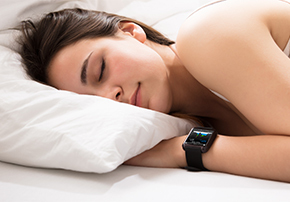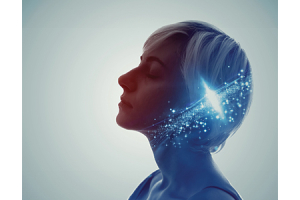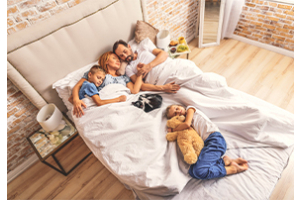To Track or Not to Track: Understanding Sleep Monitoring

To track or not to track?
Consumer-grade sleep trackers are all the rage now but are they helpful or harmful to sleep?
Currently wearable technology is rapidly gaining popularity, with many people having easy access to trackers of various brands and models all reporting different sleep measures. So, should you be hopping on the bandwagon and tracking your sleep along with your steps?
The answer, as with so many questions, is - it depends.
Understanding Your Sleep Needs: Quantity and Quality
With increasing access to sleep data, there is also a growing awareness of how crucial sleep is, which can only be a good thing in a society that all too often celebrates burning the candle at both ends. Access to sleep data can also be incredibly helpful to check in and make sure that you are hitting your personal sleep needs. To do this, take a look at your data and see in an average week how much sleep you are currently getting. The current guidelines are that for the average adult the recommended sleep duration is between 7-9 hours although for some people 6 hours may be sufficient and for others 10 hours is necessary. If you are not within this range, it may be worth reassessing your sleep and trying to prioritise getting sufficient rest. If you are within this range, it can still be helpful to track your sleep for a week and see on what days you felt most rested and restored. Is it when you are getting 7 hours or do you only feel fully restored after 9 hours?
But it’s not just the duration that is important, but also the quality of this sleep. Quality can be more difficult to quantify with a sleep tracker and so for that one you may need to focus more on how you feel during the day. If you feel refreshed and full of energy during the day, can problem solve, think creatively, focus and feel like you can properly regulate your emotions all without relying on caffeine or daytime napping then your sleep is likely absolutely fine.
The Limitations of Wearable Sleep Trackers
Despite these benefits, there are some issues with wearable sleep trackers. Firstly, research shows that these devices are not always accurate. In particular, they tend to overestimate total sleep time but underestimate wake time during sleep and the time it takes to fall asleep. This might give people the impression that their sleep is longer and of better efficiency than it really is. Another area where sleep trackers often fall down is measuring sleep staging. In comparison to the gold-standard of polysomnography, evidence suggests that wearables tend to overestimate light sleep and underestimate deep and rapid-eye movement (REM) sleep. These devices are always improving and will likely get there in the future but for now, take its estimate of your light, deep and REM sleep with a pinch of salt.
Navigating Sleep-Related Anxiety: Finding Balance
The other issue is that this new focus on sleep can create increasing anxiety around sleep and sleeping habits. The large amount of information that the user gets every morning after a night of sleep, often without any interpretation of what the data actually means, can lead to anxiety around one's sleep by overidentifying a problem or making oneself believe that there is something wrong with their sleep when in fact there isn’t. Particularly, when this belief is based on potentially inaccurate information.
Practical Advice: Dip Into and Out of Monitoring
So, where does that leave us in the question of whether or not to track your sleep? Our advice would be to dip in and out of monitoring your sleep. Check in every now and then to see if you are getting consistent, good quality sleep that is sufficient to meet your personal sleep needs and then put the watch away. How you feel during the day is much more important than how your tracker says you should feel.
Seek Professional Help When Needed
If you do feel that there is a problem with your sleep, then visit www.sleepscience.co.za or email [email protected] to make an appointment with one of our consultants. We can work together to find the underlying problem and make a plan to optimize your sleep accordingly.
If it’s your bed that’s giving you sleepless nights, then visit your nearest Dial-a-Bed store or shop online 24/7, to find your perfect match.





